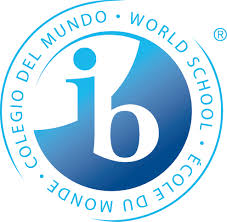Enroll today. Limited places available!

„Your story matters”
WABE International School Brian P. Couch Jr. discusses the importance of identifying allies when seeking international teaching jobs:
In the fourth and final interview in this series titled: Behind the Curtain of International Teacher Recruitment, Daryl Sinclair Head of Secondary and Social Studies Teacher at WABE International School, explores the importance of finding like-minded schools, methods to identify them, and the importance of not resigning yourself to becoming a martyr.
Brian Couch, the current Academic Managing Director of WABE International School in Pinneberg, Germany, kindly took time out of his day to share his experience and the importance of people’s stories when attempting to create a diverse and inclusive space. Brian has experience being part of senior leadership teams in the private sector in the U.S. WABE International School represents to Brian a growing international school which aims to “Do School Differently” supported by rigorous recruitment based on getting to know the applicant.
Brian Couch – Academic Managing Director at WABE International School
“People’s stories matter”.
Brian says. “If they’re able to say who they are and what journey they’ve been on that has led them to the interview we’re having, then that represents to us someone who could fit in here and can help our students to do the same thing.”
Brian has utilised a variety of recruitment channels and has seen the outcomes of different approaches. These experiences have given Brian a sensitivity to the needs of the school community and the importance of the recruitment process in providing for those needs.
“There is no way to overestimate the effect of the academic leadership team that we have” Brian explains, referring to the team at the time of our interview.
“We don’t typically make an offer on a contract unless our entire Senior Leadership Team has signed off on it. What this means for us is you have a Spanish woman who has lived and worked all over Asia and Europe signing off on it, a female British artist-activist turned German citizen signing off on it, you have a black American male—former military but who has spent the last 20 years teaching in Germany—signing off on it, alongside myself. So, if those four people agree, that is a great foundation for hiring the right, diverse faculty for our school.”
Brian’s Advice
“It’s not your job to fix the system alone— so don’t feel pressure to take it all on your shoulders and try to single-handedly tackle whatever pushback or obstacles you’re encountering in addition to being a new teacher at a school.”.
Within the world of international teaching, it is a distinct possibility that even with clear research and preparation, you may find yourself in a challenging situation. BAME international teachers commonly report seeing bias and experiencing different treatment based on their ethnicity or background. Such experiences are wearisome in isolation; Brian refers to, “the emotional baggage that comes with simply dealing with bias”. But this baggage can be multiplied when an individual feels alone in their efforts to fix the wrongs that they see.
Though attempting to positively contribute to the school community is central to a teacher’s role, it is important to prioritise building a foundation. Getting to grips with your new international role is a grand enough task to receive all of your attention at first.
Though we may think about our experiences of inclusion at the school, it is important to apply energy to those goals in a healthy and measured way. To take on important tasks such as DEIJ without first establishing a strong foundation can be to the detriment of both the DEIJ goal and your personal well-being.
“The other thing I would advise doing would be to find an ally”Brian continues. “Not necessarily for the purpose of activism—though that’s great of course—but at least in a sense that provides personal support”.
As you adjust to your new locale, identifying allies who empathise with you and perhaps share some of your experiences can make the journey much easier. This may take the form of a colleague or a friend outside the school community. A person to speak with and be seen by as you process your reality.
Further to this, Brian emphasises the importance of research and getting a vibe for the school, “I think you can tell whether the school as an institution is heading in a direction that wants to hear about [your challenges and address them] and whether it doesn’t”. The support or lack thereof from your school should inform decisions that you make both in choosing the school and how long to stay.
But ultimately, “Don’t stay if it’s racist or you experience regular bias.” is Brian’s straightforward advice, applicable to any point in the recruitment process or even once you have started the job.
Brian implores, “I know that recommendation is coming from a place of privilege, and not everyone may have the luxury to choose whether they can stay in a given position or not. But if you do have that luxury, just don’t stay if your voice isn’t being heard. They’re not worth your time, they’re not worth your life energy, and there are fortunately enough places in the world that are trying to be inclusive now. Even if those other places are not good at it yet, they want to hear your feedback and know why or what can improve.”
Thinking of the future, Brian continues, “If you’re someone with a desire to develop DEIJ that wants to help improve the situation, then go somewhere that wants you.”. Though Brian acknowledges that broad choices are a luxury for many teachers, he firmly expresses the importance of not becoming a martyr for the cause.
In Sum…
Respecting yourself and avoiding locations which do not have clear approaches to DEIJ is an important form of self-care and may support you in making a greater impact when you have the appropriate capacity.
Schools which demonstrate sensitivity to you as a storied individual, whose stories are part of the value that you bring to the school, indicate opportunities for growth. There are many schools out there trying to do better alongside initiatives from organisations such as ECIS, AIELOC, and Search Associates, which are helping to bring these schools to the forefront and make searching for international teaching roles an easier process with which we can have more confidence.
Keep learning
If the advice in this interview has resonated with you or inspired some questions, I encourage you to reach out to either Brian or myself via LinkedIn.
Any questions?
Meet Andrea, our Admissions Manager
personally to get a better impression:
Any questions?
Meet Andrea, our Admission Manager
personally to get a better impression:




